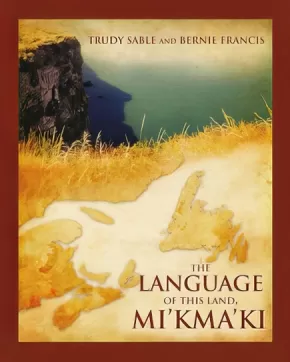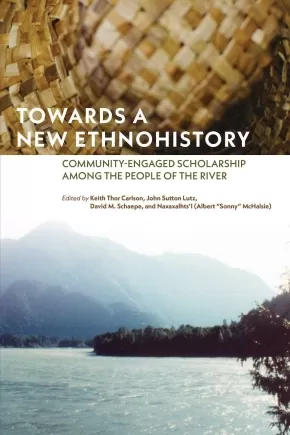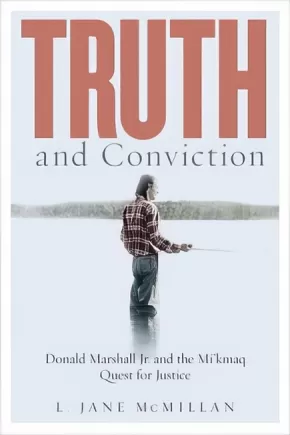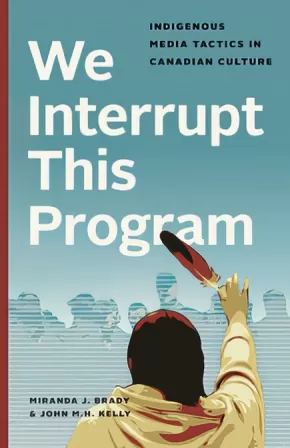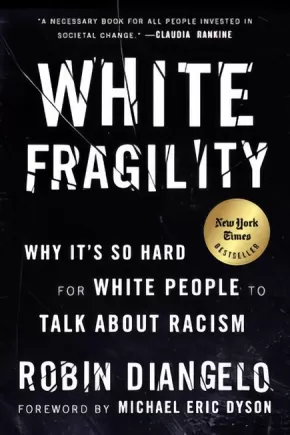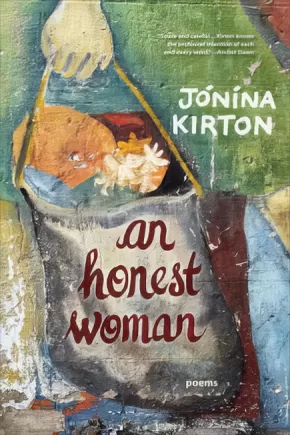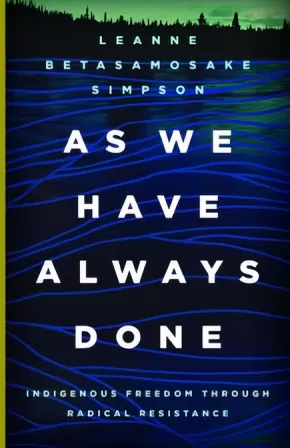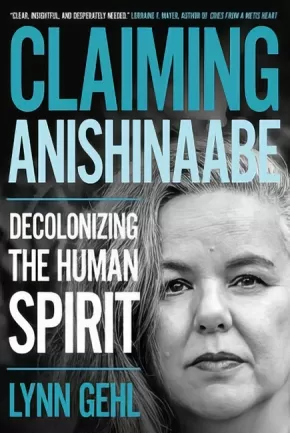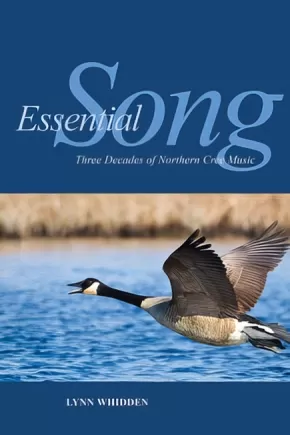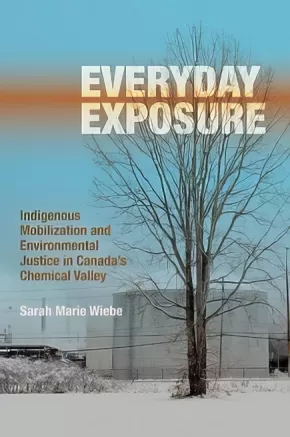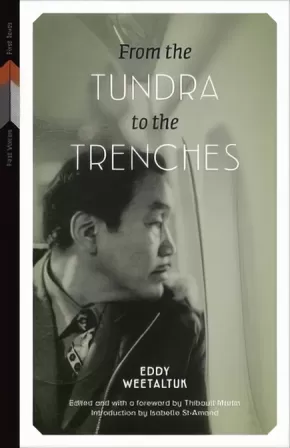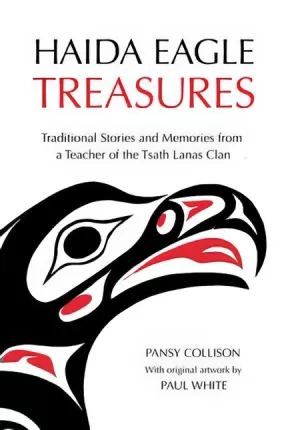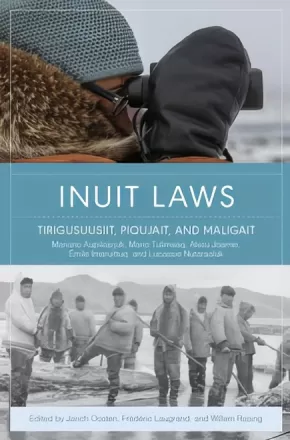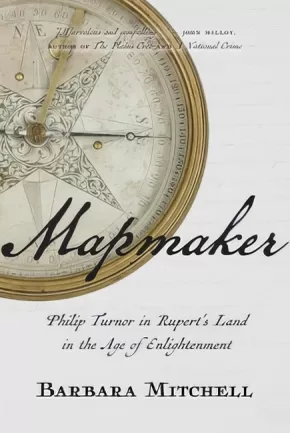
Social and Cultural Studies
481
-
495
of
556 Results;
Sort By
Go To
of 38
The Language of this Land, Mi'kma'ki
$24.95
Format:
Paperback
Text Content Territories:
Indigenous Canadian; First Nations; Mi'kmaq;
Grade Levels: University/College;
ISBN / Barcode: 9781771087094
Synopsis:
Synopsis:
The ancient landscapes of Eastern North America are reflected in the language and cultural expressions of its Indigenous peoples, the Mi'kmaq. The rhythms, sounds and patterns of their language are inextricably bound with the seasonal cycles of the animals, plants, winds, skies, waterways and trade routes.
The Language of this Land, Mi'kma'ki is an exploration of Mi'kmaw world view as expressed in language, legends, song and dance. Using imagery as codes, these include not only place names and geologic history, but act as maps of the landscape. Sable and Francis illustrate the fluid nature of reality inherent in its expression - its embodiment in networks of relationships with the landscape integral to the cultural psyche and spirituality of the Mi'kmaq.
Language has sustained the Mi'kmaq to the present day, a product of a lineage of Elders who spoke it, who danced the dances and walked this land, Mi'kma'ki, carrying its traditions forward despite centuries of cultural disruption, discrimination and degradation.
Additional Information
132 pages | 7.50" x 9.25"
Towards a New Ethnohistory: Community-Engaged Scholarship among the People of the River
$27.95
Format:
Paperback
Text Content Territories:
Indigenous Canadian; First Nations; Salish; Coast Salish; Sto:lo;
Grade Levels: University/College;
ISBN / Barcode: 9780887558177
Synopsis:
Synopsis:
Towards a New Ethnohistory engages respectfully in cross-cultural dialogue and interdisciplinary methods to co-create with Indigenous people a new, decolonized ethnohistory. This new ethnohistory reflects Indigenous ways of knowing and is a direct response to critiques of scholars who have for too long foisted their own research agendas onto Indigenous communities. Community-engaged scholarship invites members of the Indigenous community themselves to identify the research questions, host the researchers while they conduct the research, and participate meaningfully in the analysis of the researchers’ findings.
The historical research topics chosen by the Stó:lō community leaders and knowledge keepers for the contributors to this collection range from the intimate and personal, to the broad and collective. But what principally distinguishes the analyses is the way settler colonialism is positioned as something that unfolds in sometimes unexpected ways within Stó:lō history, as opposed to the other way around.
This collection presents the best work to come out of the world’s only graduate-level humanities-based ethnohistory fieldschool. The blending of methodologies and approaches from the humanities and social sciences is a model of twenty-first century interdisciplinarity.
Reviews
“At a time when Indigenous sovereignty has come to the fore, this volume sets the ‘gold standard’ for ethical scholarship and provides a roadmap and manifesto for sensible and sensitive decolonization.”– Chris Friday, Professor of History, Western Washington University
“The strength of the collection is its appreciation for and attention to interpreting history with reference to Stó:lō interpretative frames.” – Tyler McCreary, BC Booklook
“In a time when many scholars are looking to decolonize their approaches to research—especially when working with Indigenous communities—this book stands as a clear exemplar of community-engaged research and demonstrates how it can be done well.”– Jennifer Megan Markides, University of Calgary, Qualitative Research in Education
“Exemplifies a new, transdisciplinary approach to ethnohistory, in which the researcher recognizes not only the legacy of settler colonialism in Canada, but also the subjectivity and relativity of their own views and western knowledge as a whole. This new ethnohistory aims to work with the community at all levels of research and form and sustain relationships that last long after fieldwork is conducted. Its hope is to produce scholarship that is cutting edge, complex, accessible and relevant to members of the community.”– Daniel Sims, NICHE
“Settler scholars concerned with disciplinary crises need look no further than this excellent anthology for models of respectful intercommunity engagement, radical methodology and pedagogy, and a paradigm for solidarity work that chooses to develop respectful relationships over moribund agonizing.”– Madeleine Reddon, Canadian Literature
Educator Information
Table of Contents
Introduction
Ch. 1—Kinship Obligations to the Environment
Ch. 2—Relationships
Ch. 3—Crossing Paths
Ch. 4—Stó:lō Ancestral Names, Identity and the Politics of History
Ch. 5—Disturbing the Dead
Ch. 6—Food as a Window into Stó:lō Tradition and Stó:lō-Newcomer Relation
Ch. 7—’Bringing Home all That Has Left’
Ch. 8—Totem Tigers and Salish Sluggers
Ch. 9—’I Was Born a Logger’
Ch. 10—’They Are Always Looking for the Bad Stuff’
Ch. 11—Next Steps in Indigenous Community-Engaged Research
Additional Information
304 pages | 6.00" x 9.00"
Truth and Conviction: Donald Marshall Jr. and the Mi'kmaw Quest for Justice
$34.95
Format:
Hardcover
Text Content Territories:
Indigenous Canadian; First Nations; Mi'kmaq;
Grade Levels: University/College;
ISBN / Barcode: 9780774837484
Synopsis:
Synopsis:
The name “Donald Marshall Jr.” is synonymous with “wrongful conviction” and the fight for Indigenous rights in Canada. In Truth and Conviction, Jane McMillan – Marshall’s former partner, an acclaimed anthropologist, and an original defendant in the Supreme Court’s Marshall decision on Indigenous fishing rights – tells the story of how Marshall’s fight against injustice permeated Canadian legal consciousness and revitalized Indigenous law.
Marshall was destined to assume the role of hereditary chief of Mi’kmaq nation when, in 1971, at the age of seventeen, he was wrongly convicted of murder. He spent more than eleven years in jail before a royal commission exonerated him and exposed the entrenched racism underlying the terrible miscarriage of justice. Four years later, in 1993, he was charged with fishing eels without a licence. With the backing of Mi’kmaq chiefs and the Union of Nova Scotia Indians, he took the case all the way to the Supreme Court to vindicate Indigenous treaty rights in the landmark Marshall decision.
Marshall was only fifty-five when he died in 2009. His legacy lives on as Mi’kmaq continue to assert their rights and build justice programs grounded in customary laws and practices, key steps in the path to self-determination and reconciliation.
This book will appeal to anyone interested in the Donald Marshall story, Indigenous peoples encounters with the law, and social justice issues.
Reviews
"Jane McMillian has written an admirable, engaging, and formidable book about an Indigenous man’s quest for justice against the systemic injustices of Canada." -
Additional Information
288 pages | 6.00" x 9.00" | 10 black and white photographs
We Interrupt This Program: Indigenous Media Tactics in Canadian Culture
$29.95
Format:
Paperback
Text Content Territories:
Indigenous Canadian;
Grade Levels: University/College;
ISBN / Barcode: 9780774835091
Synopsis:
Synopsis:
We Interrupt This Program tells the story of how Indigenous people are using media tactics in the realms of art, film, television, and journalism to rewrite Canada’s national narratives from Indigenous perspectives.
Miranda Brady and John Kelly showcase the diversity of these interventions by offering personal accounts and reflections on key moments – witnessing survivor testimonies at the Truth and Reconciliation Commission, attending the opening night of the ImagineNative Film + Media Festival, and discussing representations of Indigenous people with artists such as Kent Monkman and Dana Claxton and with CBC journalist Duncan McCue. These scene-setting moments bring to life their argument that media tactics, as articulations of Indigenous sovereignty, have the power not only to effect change from within Canadian institutions and through established mediums but also to spark new forms of political and cultural expression in Indigenous communities and among Indigenous youth.
Theoretically sophisticated and eminently readable, We Interrupt This Program reveals how seemingly unrelated acts by Indigenous activists across Canada are decolonizing our cultural institutions from within, one intervention at a time.
This book will appeal to wide spectrum of readers – from students and scholars in communications and media studies to those with a general interest in Canadian art, culture, history, journalism, anthropology, and Indigenous studies.
Reviews
"...the book chronicles the breadth of media interventions employed by Aboriginal media creators, foregrounding Indigenous worldviews, agency and resilience while challenging colonial myths. It is a vital resource for anyone seeking to understand Indigenous cultural expression in Canada in the digital age." — Brad Clark, Journalism and Broadcast Media Studies at Mount Royal University, Canadin Journal of Native Studies, Vol. 38, No. 1, January 2018
"[We Interrupt this Program] provides an analytical perspective to help readers reflect on what types of new interruptions may be brewing – or to plan the interventions themselves." — Greg Macdougall, Briarpatch Magazine, June 2018
Educator Information
Table of Contents
Introduction: Indigenous Media Tactics
1 Media Practices and Subversions: Survivor Testimonials in the Truth and Reconciliation Commission
2 IsumaTV’s “Testimony by Isuma”: Online Expressions of Inuit Culture and Assimilation
3 Redfacing, Remediation, and Other Indigenous ArtTactics: Challenging Cultural Institutions
4 imagineNATIVE as Industry Intervention: Supporting and Growing Indigenous Media Makers
5 Reporting News in Indigenous Communities: A Conversation with Journalist Duncan McCue on Respect and Relationality
Conclusion: Media Tactics Old and New
Notes; Works Cited; Index
Additional Information
220 pages | 5.50" x 8.50" | 14 B&W Photos
White Fragility: Why It's So Hard for White People to Talk About Racism
$22.00
Format:
Paperback
Grade Levels: 12; University/College;
ISBN / Barcode: 9780807047415
Synopsis:
Synopsis:
The New York Times best-selling book exploring the counterproductive reactions white people have when their assumptions about race are challenged, and how these reactions maintain racial inequality.
In this “vital, necessary, and beautiful book” (Michael Eric Dyson), antiracist educator Robin DiAngelo deftly illuminates the phenomenon of white fragility and “allows us to understand racism as a practice not restricted to ‘bad people’ (Claudia Rankine). Referring to the defensive moves that white people make when challenged racially, white fragility is characterized by emotions such as anger, fear, and guilt, and by behaviors including argumentation and silence. These behaviors, in turn, function to reinstate white racial equilibrium and prevent any meaningful cross-racial dialogue. In this in-depth exploration, DiAngelo examines how white fragility develops, how it protects racial inequality, and what we can do to engage more constructively.
Reviews
“The value in White Fragility lies in its methodical, irrefutable exposure of racism in thought and action, and its call for humility and vigilance.” —The New Yorker
“White Fragility is a book everyone should be exposed to. With any luck, most who are will be inspired to search themselves and interrupt their contributions to racism.” —Shelf Awareness, Starred Review
“A valuable guide . . . While especially helpful for those new to the critical analysis of whiteness, this work also offers a useful refresher to anyone committed to the ongoing process of self-assessment and anti-oppression work.” —Library Journal
“As a woman of color, I find hope in this book because of its potential to disrupt the patterns and relationships that have emerged out of long-standing colonial principles and beliefs. White Fragility is an essential tool toward authentic dialogue and action. May it be so!” —Shakti Butler, president of World Trust and director of Mirrors of Privilege: Making Whiteness Visible
“Robin DiAngelo demonstrates an all-too-rare ability to enter the racial conversation with complexity, nuance, and deep respect. Her writing establishes her mastery in accessing the imaginal, metaphoric mind where the possibility for transformation resides. With an unwavering conviction that change is possible, her message is clear: the incentive for white engagement in racial justice work is ultimately self-liberation.”—Leticia Nieto, coauthor of Beyond Inclusion, Beyond Empowerment
Additional Information
192 pages | 6.00" x 9.00"
An Honest Woman
$16.95
Format:
Paperback
Text Content Territories:
Indigenous Canadian;
ISBN / Barcode: 9781772011449
Synopsis:
Synopsis:
An Honest Woman by Jonina Kirton confronts us with beauty and ugliness in the wholesome riot that is sex, love, and marriage. From the perspective of a mixed-race woman, Kirton engages with Simone de Beauvoir and Donald Trump to unravel the norms of femininity and sexuality that continue to adhere today.
Kirton recalls her own upbringing, during which she was told to find a good husband who would “make an honest woman” out of her. Exploring the lives of many women, including her mother, her contemporaries, and well-known sex-crime stories such as the case of Elisabeth Fritzl, Kirton mines the personal to loosen the grip of patriarchal and colonial impositions.
An Honest Woman explores the many ways the female body is shaped by questions that have been too political to ask: What happens when a woman decides to take her sexuality into her own hands, dismissing cultural norms and the expectations of her parents? How is a young woman’s sexuality influenced when she is perceived as an “exotic” other? Can a woman reconnect with her Indigenous community by choosing Indigenous lovers?
Daring and tender in their honesty and wisdom, these poems challenge the perception of women’s bodies as glamorous and marketable commodities and imagine an embodied female experience that accommodates the role of creativity and a nurturing relationship with the land.
Reviews
“Jonina Kirton is courageously honest about her life experiences as a female of Indigenous and immigrant ancestry. Many poems resonate deeply, as we identify with her personal quest to figure out who she is, and the unacceptable things done to her. Her raw honesty is unsettling and uncomfortable, because it can be our truth too. Her poems depict devaluation and dehumanization, grieving, lessons learned. Her poems offer important insights as to why there are thousands of missing and murdered Indigenous women.” — Senator Lillian E. Dyck
“When writing from the voice of between, writer and reader have no place to hide. Assumptions and camouflage fall away. Murdered, missing, and violated women and girl voices have been silenced. The story lethally repeats. Kirton picks over how she was raised familially and culturally like a crime scene. Too, she affirms, ‘I have been here forever and I will rise again and again.’ Tough, eloquent, revelatory, these poems are the very ones we are desperately in need of.” — Betsy Warland, author of Oscar of Between: A Memoir of Identity and Ideas
“I’m sure people have been looking at me strangely every time I gasp, but I can’t glance away from the page for even a second to notice. Some of the poems end sharply, with a punch; some deliberately leave me searching for the next line; others show the repetition of heartbreaking cycles of violence and oppression, but offer a portrayal of resilience, too.” — All Lit Up!
Educator Information
This book would be useful for Women's Studies, Creative Writing, English Language Arts, Poetry, and English courses. Recommended for grades 11-12 and university-college students.
Please be advised, this book contains explicit sexual references and references to sexual and physical abuse.
Additional Information
104 pages | 6.00" x 9.00"
As We Have Always Done: Indigenous Freedom Through Radical Resistance (1 in stock, in Reprint)
$26.99
Format:
Paperback
Text Content Territories:
Indigenous American; Indigenous Canadian;
Grade Levels: University/College;
ISBN / Barcode: 9781517903879
Synopsis:
Synopsis:
Across North America, Indigenous acts of resistance have in recent years opposed the removal of federal protections for forests and waterways in Indigenous lands, halted the expansion of tar sands extraction and the pipeline construction at Standing Rock, and demanded justice for murdered and missing Indigenous women. In As We Have Always Done, Leanne Betasamosake Simpson locates Indigenous political resurgence as a practice rooted in uniquely Indigenous theorizing, writing, organizing, and thinking.
Indigenous resistance is a radical rejection of contemporary colonialism focused around the refusal of the dispossession of both Indigenous bodies and land. Simpson makes clear that its goal can no longer be cultural resurgence as a mechanism for inclusion in a multicultural mosaic. Instead, she calls for unapologetic, place-based Indigenous alternatives to the destructive logics of the settler colonial state, including heteropatriarchy, white supremacy, and capitalist exploitation.
Awards
- Native American and Indigenous Studies Association's Best Subsequent Book 2017
Reviews
"This is an astonishing work of Indigenous intellectualism and activism—by far the most provocative, defiant, visionary, and generous of Leanne Betasamosake Simpson's impressive corpus to date."—Daniel Heath Justice (Cherokee Nation), University of British Columbia
"I have learned more about this battered world from reading Leanne Betasamosake Simpson than from almost any writer alive today. A dazzlingly original thinker and an irresistible stylist, Simpson has gifted us with a field guide not to mere political resistance but to deep and holistic transformation. It arrives at the perfect time."—Naomi Klein, author of The Shock Doctrine and This Changes Everything
"A remarkable achievement that illuminates what is possible when we engage in the revolutionary act of indigenous self-love, As We Have Always Done asks the simple question, ‘What if no one sided with colonialism?’ The many possible answers to that question are reflected in Leanne Betasamosake Simpson’s beautifully written book in which she kindly challenges indigenous people to reclaim their lives and bodies from the settler colonial state."—Sarah Deer (Muscogee [Creek] Nation), author of The Beginning and End of Rape
"Incisive. Unmitigated. Inspiring. Simpson gives no quarter to colonialism. No quarter to a nasty Western narrative. She provides a pure, Indigenous lens—a lens that the white man tried to kill and bury. This book is a reminder that they failed in that rotten endeavor. It belongs on every Canadian bookshelf. On every American coffee table. Simpson's words are an affirmation of Indigenous resilience and resolve."—Simon Moya-Smith (Lakota and Chicano), culture editor at Indian Country Media Network
"Leanne Betasamosake Simpson confronts colonialism from the perspective of indigenous nationhood, but goes beyond arguing for changes in politics, writing in a way that enacts changes in our thinking about politics."—Indian Country Today
"While her intended audience is other Indigenous peoples, I think non-Indigenous Canadians will find it inspiring as they take up her challenge of decolonization."—Watershed Sentinel
"As We Have Always Done is an in-depth look into indigenous resistance and what is possible when that resistance embraces indigenous culture. It gives us a glimmer of hope. Hope that there is another way to live. That we can forge relationships, be with each other, and live for much more than what neo-liberal capitalism tells us life is about."—The Collective
"This book will not only offer the Indigenous community much courage, but it will also open the eyes of many non-indigenous people. We have here not just a description of a state of affairs, but also a practical guide. A very important, successful publication."—Amerindian Research
"The book is essential for anyone studying any aspect of Indigenous decolonization, politics, law, and settler colonialism, and signals a vital shift away from current neoliberal discussions and policies of indigenization and reconciliation in order to rebuild and recover indigenous nationhoods."—Transmotion
Additional Information
320 pages | 5.50" x 8.50" | Paperback
Claiming Anishinaabe: Decolonizing the Human Spirit
$24.95
Format:
Paperback
Text Content Territories:
Indigenous Canadian; First Nations; Anishinaabeg;
Grade Levels: 12; University/College;
ISBN / Barcode: 9780889774919
Synopsis:
Synopsis:
Denied her Indigenous status, Lynn Gehl has been fighting her entire life to reclaim mino-pimadiziwin--the good life. Exploring Anishinaabeg philosophy and Anishinaabeg conceptions of truth, Gehl shows how she came to locate her spirit and decolonize her identity, thereby becoming, in her words, "fully human." Gehl also provides a harsh critique of Canada and takes on important anti-colonial battles, including sex discrimination in the Indian Act and the destruction of sacred places.
Reviews
Gehl is at the cutting edge with her concepts and ideas... She is on a journey and documents it well. — Lorelei Anne Lambert, author of Research for Indigenous Survival
Clear, insightful, and desperately needed... — Lorraine F. Mayer, author of Cries from a Métis Heart
The discussion of the heart and mind knowledge, as well as the discussion on the Anishinaabeg Clan System of Governance, [are] major contributions to the research. — Marlyn Bennett, co-editor of Pushing the Margins
"Throughout Claiming Anishinaabe, the conversation remains rooted in the destructive effects of oppressive power on the human spirit, and an insistence that both knowledge and spirituality are key in reclaiming one’s sense of self." — Quill & Quire
Educator Information
This book would be useful for the following subject areas or courses: Indigenous Studies, Canadian History (Post-Confederation), Social Science, Autobiography/Biography Studies, Spirituality, and Law.
Additional Information
176 pages | 5.50" x 8.50" | Includes line drawings
Essential Song: Three Decades of Northern Cree Music
$39.99
Format:
Paperback
Text Content Territories:
Indigenous Canadian; First Nations; Cree (Nehiyawak);
Grade Levels: University/College;
ISBN / Barcode: 9781554586134
Synopsis:
Synopsis:
Essential Song: Three Decades of Northern Cree Music, a study of subarctic Cree hunting songs, is the first detailed ethnomusicology of the northern Cree of Quebec and Manitoba. The result of more than two decades spent in the North learning from the Cree, Lynn Whidden’s account discusses the tradition of the hunting songs, their meanings and origins, and their importance to the hunt. She also examines women’s songs, and traces the impact of social change—including the introduction of hymns, Gospel tunes, and country music—on the song traditions of these communities.
The book also explores the introduction of powwow song into the subarctic and the Crees struggle to maintain their Aboriginal heritage—to find a kind of song that, like the hunting songs, can serve as a spiritual guide and force.
Including profiles of the hunters and their songs and accompanied (online) by original audio tracks of more than fifty Cree hunting songs, Essential Song makes an important contribution to ethnomusicology, social history, and Aboriginal studies.
Awards
- ForeWord Magazine Book of the Year Award, Bronze Pize, Music Category
Educator Information
Audio files available on Soundcloud: https://soundcloud.com/user-276681310/sets/essential-song-three-decades.
Additional Information
192 pages | 6.00" x 9.00"
Everyday Exposure: Indigenous Mobilization and Environmental Justice in Canada's Chemical Valley
$32.95
Format:
Paperback
Text Content Territories:
Indigenous Canadian; First Nations; Anishinaabeg; Ojibway;
ISBN / Barcode: 9780774832649
Synopsis:
Synopsis:
Surrounded by Canada’s densest concentration of chemical manufacturing plants, members of the Aamjiwnaang First Nation express concern about a declining male birth rate and high incidences of miscarriage, asthma, cancer, and cardiovascular illness. Everyday Exposure uncovers the systemic injustices they face as they fight for environmental justice. Exploring the problems that conflicting levels of jurisdiction pose for the creation of effective policy, analyzing clashes between Indigenous and scientific knowledge, and documenting the experiences of Aamjiwnaang residents as they navigate their toxic environment, this book argues that social and political change requires a transformative “sensing policy” approach, one that takes the voices of Indigenous citizens seriously.
Educator Information
This book would be useful for courses in Environmental Studies, Science, Social Justice, and Social Studies.
Additional Information
280 pages | 6.00" x 9.00"
From the Tundra to the Trenches
$24.95
Editors:
Format:
Paperback
Text Content Territories:
Indigenous Canadian; Inuit;
ISBN / Barcode: 9780887558221
Synopsis:
Synopsis:
“My name is Weetaltuk; Eddy Weetaltuk. My Eskimo tag name is E9-422.” So begins From the "Tundra to the Trenches." Weetaltuk means “innocent eyes” in Inuktitut, but to the Canadian government, he was known as E9-422: E for Eskimo, 9 for his community, 422 to identify Eddy.
In 1951, Eddy decided to leave James Bay. Because Inuit weren’t allowed to leave the North, he changed his name and used this new identity to enlist in the Canadian Forces: Edward Weetaltuk, E9-422, became Eddy Vital, SC-17515, and headed off to fight in the Korean War. In 1967, after fifteen years in the Canadian Forces, Eddy returned home. He worked with Inuit youth struggling with drug and alcohol addiction, and, in 1974, started writing his life’s story. This compelling memoir traces an Inuk’s experiences of world travel and military service. Looking back on his life, Weetaltuk wanted to show young Inuit that they can do and be what they choose.
Reviews
“Endlessly interesting; an account of a traditional way of life now lost, a gripping first-hand account of a front-line soldier during the war, and an honest account of a young man’s adventures and misadventures. It is to all our benefit that it has, at last, found its way into print." — Michael Melgaard, The National Post
“Tender, honest, and often raw, Weetaltuk’s storytelling is masterful, engrossing, and deeply human. He has imbued his writing with a philosophical nuance that is characteristically Inuit: very subtle, yet profound." — Siku Allooloo, The Malahat Review
“Recounts the adventures of Inuk veteran Eddy Weetaltuk, from his early life in the North to his escape to the south under an assumed identity, to his enlistment in the Canadian Forces, which took him across the Canadian West, to Japan and Germany, and into battle in Korea. Adopting the name Eddy Vital was necessary in 1951 because the federal government restricted the movement of Inuit people. Through his alias, Weetaltuk was able to see the world; in the army, he experienced equality and respect – all the while never forgetting his true identity as an Inuk. The publication history of From the Tundra to the Trenches is itself a four-decades-long saga of many twists and turns. That it now finds English publication (after first appearing in French and German) owes to the author’s conviction that his life story be read as a work of literature with the makings of a bestseller. Eddy Weetaltuk was right.”— Jade Colbert, The Globe and Mail
“For those interested in Inuit culture it offers the rare and valuable perspective of an Inuk looking out from his culture at the world rather than the world looking in. “ — P. T. Sherrill, CHOICE
Educator & Series Information
From the Tundra to the Trenches is the fourth book in the First Voices, First Texts series, which publishes lost or underappreciated texts by Indigenous writers. This new English edition of Eddy Weetaltuk’s memoir includes a foreword and appendix by Thibault Martin and an introduction by Isabelle St-Amand.
Additional Information
280 pages | 5.50" x 8.50" | 25 colour illustrations, 3 b&w photographs, bibliography
Haida Eagle Treasures: Traditional Stories and Memories from a Teacher of the Tsath Lanas Clan
$24.95
Artists:
Format:
Paperback
Text Content Territories:
Indigenous Canadian; First Nations; Haida; Eagle Clan (Ts'aahl);
ISBN / Barcode: 9781550597486
Synopsis:
Synopsis:
Take a journey into the heart of Haida culture as it is lived and experienced by an extraordinary woman of the Tsath Lanas Eagle Clan. Pansy Collison, a Haida woman born and raised in Old Massett on Haida Gwaii, tells stories of her clan and community, as well as personal narratives about her history and family. Haida Eagle Treasures embodies a strong Haida woman’s voice, offering a rare glimpse inside Haida culture. Each story and memory is a treasure that captures part of the beauty of the Haida worldview and way of life.
Now retired, Pansy taught for 23 years at elementary, secondary, and college levels. From these experiences, she describes some of the challenges and contradictions of living between two worlds. Pansy’s teaching skills, artistic talents, and political affiliations keep her involved in politics and education on Haida Gwaii.
Thirteen original illustrations by Pansy’s brother, Paul White, a gifted artist, teacher, pole carver and designer, provide the guideposts within Haida Eagle Treasures.
Educator Information
Recommended in the Canadian Indigenous Books for Schools 2019-2020 resource list as being useful for grades 8-12 for English Language Arts and Social Studies.
Caution: use of the term "Native" throughout.
Additional Information
244 pages | 6.00" x 9.00" | 2nd Edition
Inuit Laws: Tirigusuusiit, Piqujait, and Maligait
$27.95
Editors:
Format:
Paperback
Text Content Territories:
Indigenous Canadian; Inuit;
Grade Levels: University/College;
ISBN / Barcode: 9781897568507
Synopsis:
Synopsis:
Through the voices of Inuit elders, this book is a critical and cultural-historical engagement with the traditional concepts of tirigusuusiit, piqujait, and maligait.
These three concepts refer to what had to be followed, done, or not done in Inuit culture. Although these terms are now often used as equivalents to modern Western notions of law, this work examines how Inuit and Western concepts of law derive from completely different cultural perspectives. Through the guiding concepts of maligait, piqujait, and tirigusuusiit, this book transcends discussions of law, examining how these Inuit concepts are embedded in social and cosmic relationships.
This unique book examines these challenging concepts through the knowledge and stories of Inuit elders and evokes a unique experience whereby Western knowledge—embodied in the participating scholars—works to describe and understand Inuit knowledge and models of traditional law. This is a new and updated edition of Interviewing Inuit Elders Vol. 2: Perspectives on Traditional Law.
Contributing Elders: Mariano Aupilaarjuk, Marie Tulimaaq, Akisu Joamie, Émile Imaruittuq, and Lucassie Nutaraaluk.
Additional Information
380 pages | 6.00" x 9.00" | 2nd Edition
Making Space for Indigenous Feminism - 2nd Edition
$35.00
Editors:
Format:
Paperback
Text Content Territories:
Indigenous;
Grade Levels: 12; University/College;
ISBN / Barcode: 9781552668832
Synopsis:
Synopsis:
The first edition of Making Space for Indigenous Feminism proposed that Indigenous feminism was a valid and indeed essential theoretical and activist position, and introduced a roster of important Indigenous feminist contributors. This new edition builds on the success and research of the first and provides updated and new chapters that cover a wide range of some of the most important issues facing Indigenous peoples today: violence against women, recovery of Indigenous self-determination, racism, misogyny and decolonization. Specifically, new chapters deal with Indigenous resurgence, feminism amongst the Sami and in Aboriginal Australia, neoliberal restructuring in Oaxaca, Canada’s settler racism and sexism, and missing and murdered Indigenous women and girls in Canada.
Written by Indigenous feminists and allies, this book provides a powerful and original intellectual and political contribution demonstrating that feminism has much to offer Indigenous women, and all Indigenous peoples, in their struggles against oppression.
Reviews
“Making Space for Indigenous Feminism is an essential resource that places gender justice at the core of our analyses of colonization and decolonization. What we learn is urgent: without addressing the systemic and symbolic character of the gendered violence that Indigenous women, girls, two-spirit, trans, and queer folks disproportionately face, decolonization will remain a man-made, colonial sham.” — Glen Coulthard, First Nations and Indigenous Studies, UBC
“This path-breaking collection brings together leading and emerging voices in the field, presenting critical innovative research that reminds us of the need for a consistent application of feminist analytic tools to understand colonialism and patriarchy as mutually constitutive and reinforcing forces. This collection is essential as an emancipatory tool for decolonization and Indigenous resurgence.” — Heidi Kiiwetinepinesiik Stark, University of Victoria
Additional Information
256 pages | 6.00" x 9.00"
Mapmaker: Philip Turnor in Rupert's Land in the Age of Enlightenment
$39.95
Format:
Hardcover
Text Content Territories:
Indigenous Canadian; First Nations; Cree (Nehiyawak);
Grade Levels: University/College;
ISBN / Barcode: 9780889775039
Synopsis:
Synopsis:
"[M]arvelous and compelling..." - John Milloy, author of The Plains Cree and A National Crime
As the first inland surveyor for the Hudson's Bay Company, Philip Turnor stands tall among the explorers and mapmakers of Canada. Accompanied by Cree guides and his Cree wife, Turnor travelled 15,000 miles by canoe and foot between 1778 and 1792 to produce ten maps, culminating in his magnum opus, a map that was the foundation of all northern geographic knowledge at that time. Barbara Mitchell's biography brings to life the man who taught David Thompson and Peter Fidler how to survey. In her search for Turnor's story, Mitchell discovers her own Cree-Orkney ancestry and that of thousands of others who are descendents of Turnor and his Cree wife.
Reviews
"Mitchell's work adds substantially to a deeper knowledge of Turnor, his life, his work, and to the extent possible, his character. It provides the first close study of his background, writings, career trajectory, and contributions to the mapping of North America." - Jennifer Brown, author of Strangers in Blood: Fur Trade Company Families in Indian Country
"Where books on Canada, indigenous life, exploration, or genealogy are favorites, this historical account is a must." - Henrietta Verma, Library Journal
"Mitchell shows the human side of map-making through reconstructions of Turnor's daily life ... The result is a wonderfully detailed and convincing portrait of early Canadian life in the era of Indigenous-European trade." - Lyle Dick, Canada's History
"Since the research material informing this biography was framed through the sensibilities of an eighteenth-century Englishman, there is very little reference to Turnor’s Cree wife. Mitchell, having only recently discovered her own Cree roots, is also unable to supply that Indigenous perspective in her journals. Her narrative ends with the appreciation that her lifelong self-identification as a British Canadian performs over her newer realization that she is also Cree. In her epilogue and her acknowledgements, she reaches out to her Cree heritage, stating simply, “I am listening.” - Beverley Haun, Canadian Literature: A Quarterly of Criticism and Review
Additional Information
352 pages | 6.25" x 9.25"
Sort By
Go To
of 38

